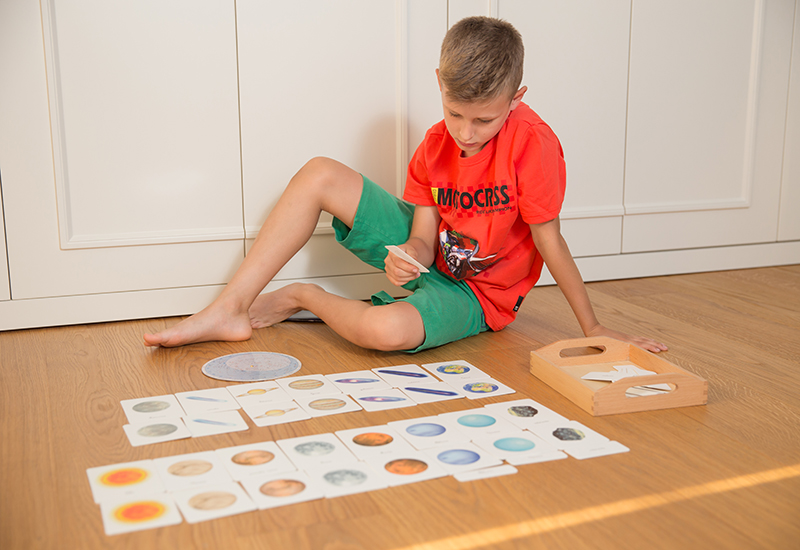My child won’t listen to me!
One of the most difficult things we face as parents is when our kids just don’t seem to listen to us.
Today, I would like to share with you some tips for parents with small children: let’s say from 1 to 4 years old approximately, but you’ll find it useful through all the way of parenting with your children. I found it beneficial for myself. I share these suggestions from Montessori teacher and author of the one of my favorites books for parents “The Montessori Toddler “–Simone Davies.
1.Show, not tell
Rather than just giving instructions, get up and show your child. It may take more effort initially, but your child will pick things up quickly.
2.Say just one word
Instead of nagging them, we can just use one word and they can work out the rest. Great for kids that don’t like to be told what to do. It’s also brilliant modelling for your children. My son once said to me, “laces”. I looked down and I was indeed standing on his shoelace which he was trying to tie. A nice way for him to tell me instead of rolling his eyes at me and saying, “Muuuum you’re standing on my shoe lace. How am I supposed to get ready?!”
3.Write a note (even if they don’t read yet)
This tip (and #2) are from the book that changed the way I parent, “How to talk so kids will listen and listen so kids will talk” by Faber & Mazlich. You don’t need to cover your house in notes, but if you have a contentious issue and you find yourself nagging or saying no about it a lot, then try a note.
4.Think to yourself, “where does this come from”?
This is great tip from one of my favorite Montessorians, Pamela Green. Pamela writes, “Ask the question of where does the phrase, “My child won’t listen……” come from in ourselves. Where does it resonate from within us, and what is our motivation in stating this about our child? Perhaps they are not listening because we are not connected to them, and maybe jump to our own conclusions about what we feel is behind their actions…I find the questions I am sometimes asking of others really are questions or statements that can be used for my own self-reflection.”
Parenting can indeed become a spiritual journey.
5.Allow time to process
We think our child hasn’t heard but when we wait (try to count to 10 in our head), we see they have heard. It just takes time for them to process our request and transition. I am always shocked when I stop and count to 10 in my head after making a request from my kids, just how many urges I have to repeat myself in that short period of time. And by the time I get to 8 or 9 in my head I see them starting to respond. No nagging required. It’s brilliant.
6.Be funny
Who remembers a time when they didn’t take things too seriously and their kid not only heard, but spirits stayed high, too? So, easy, but so often overlooked. Kids love to be silly. Maybe leaving the house or the park could be lightened by using humor.
7.Get heart to heart.
Get down to their level, connect first with empathy and with the whole body – their eyes, heartbeat, breathing. Then, once calm, we can redirect if needed or talk about what happened. We help them to calm, at their level, with our whole body listening. Then redirect if needed in an age appropriate way and depending on the reason, e.g., are they tired, hungry, needing to move etc. Rather than reaching for an iPad or offering a cookie…
8.Break it into steps.
Rather than “Let’s get ready to go”, give one step at a time. (1) Where is your coat? (2) Shoes? (3) etc.… Let’s look at our request and break it into manageable steps. Rather than “Let’s tidy the room”, the first step might be, “Let’s start with the Lego.” Are you asking too much from your children? Let’s break it into steps.
9.Try ‘working with’ rather than ‘doing to’.
We’re often driven by what we want to happen. Shift the focus to how everyone and have their needs met.
Number 9 is one big SHIFT that’s worth trying. It’s based on the idea of ‘working with’ your children rather than ‘doing to’. It doesn’t mean the kids are in charge. But what I love about this approach is that everyone can get their needs met.
Imagine an afternoon where the kids want to play and their parent wants to pick up groceries for dinner. We could bribe them (‘doing to’) saying we can go to the park if they are good at the supermarket. Or we can make a subtle shift where everyone gets their needs met by making a plan together (‘working with’).
“I’d like to pick up some things from the shops and you’d like to go to the park. How can we make that work do you think?” They agree to first go to the shops, then go to the park. The same result except in the second case, the child is involved and therefore more likely to cooperate without feeling bribed or manipulated.
This method involves honesty and cooperation in place of surreptitiously making kids do what we want. It doesn’t happen overnight. But your kids will learn that they are also valued members of the family.
10.Can they hear me?
“Can they hear me?” Meaning physically, yes, but also emotionally, developmentally and psycho-socially.?Often, changing our method of instruction, the way we say it, whether we are making eye contact, or tactile contact, the words we use, our sentence structure, can make a big difference. And quite often, what we are asking is not realistic, so even if they can ‘hear’ us, they can’t really hear us. ??
I am a parent, a Montessori teacher and a woman who really loves children and everything what connects with them. Sometimes though, I find myself speechless and I really need inspirations or just few tips for dealing with difficult moments and behaviors in our daily life with kids. I would like to recommend you just few books, that were fundamental for my life as a mum.
6 Important titles of books about children’s behavior and parenting. My recommendations:
- “How to talk so kids will listen and Listen so kids will talk”. Adele Faber, Elaine Mazlish.
- “The Montessori Toddler”. Simone Davies.
- “Siblings without rivalry. How to help your children live together so you can live too”. Adele Faber, Elaine Mazlish
- “How to raise an amazing child the Montessori way”. Tim Seldin.
- “Everyday Blessings: The Inner Work of Mindful Parenting”. Myla and Jon Kabat-Zinn.
- “Understanding Your Child’s Brain”. Alvaro Bilbao



